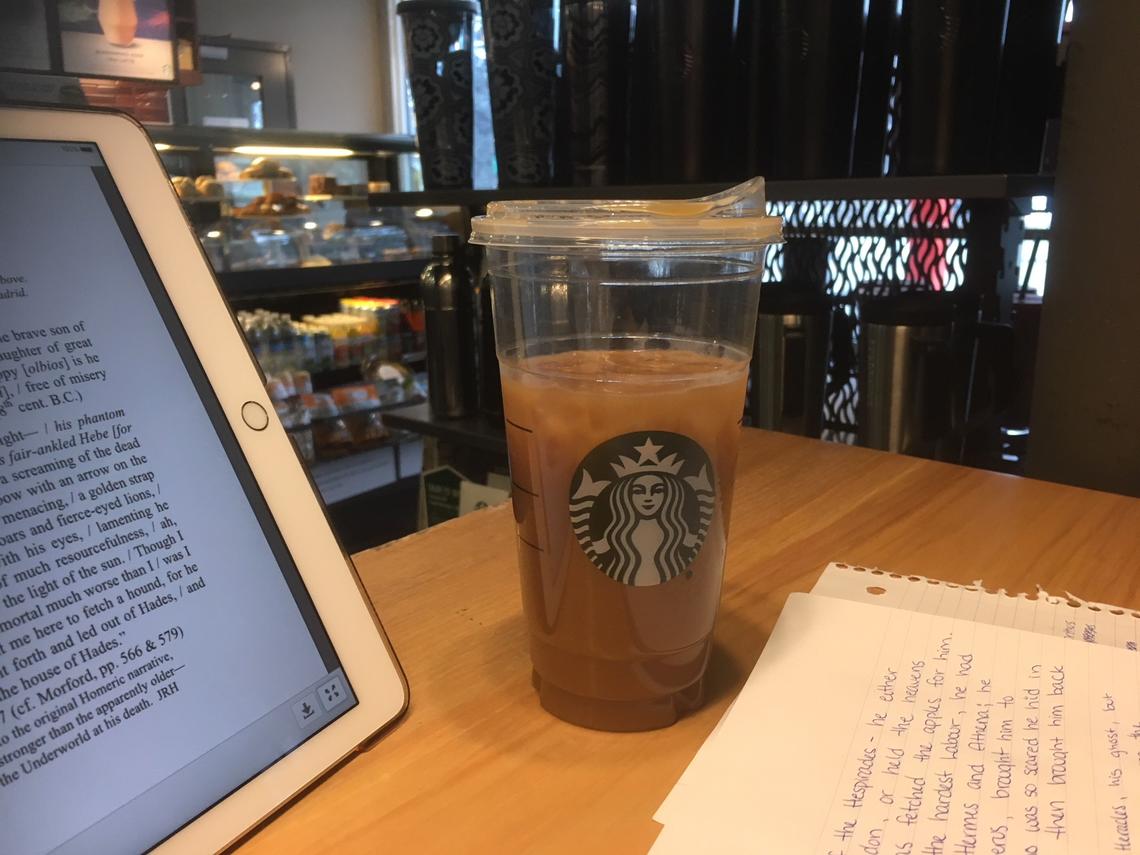April 9, 2018
UCalgary goes straw-free to mark World Water Day

Sandesh Regmi volunteered on World Water Day to gather information about the use of straws on campus
Michelle Crossland, University of Calgary
People drinking water, juice, iced drinks and other beverages marked World Water Day on March 22 by giving up plastic straws with their drinks from food vendors across campus. The straw-free day was a collaboration between University of Calgary students and staff, the Graduate Students' Association, Students' Union and Aramark.
A number of locations — the Dining Centre, the Den, Last Defence Lounge, the Landing, and Starbucks in Mac Hall, Crowsnest Hall and Yamnuska Hall — agreed to not give out straws with their drinks for the day. A team of about 13 volunteers from UCalgary’s Office of Sustainability volunteered to ask people a few questions after they got their beverages.
“We asked if they noticed no straws came with their drinks and how they felt about it and how they feel it impacted them,” says Hannah Asaolu, one of the student volunteers. "Based on my experience with the people I surveyed, most people didn't notice the straws were gone. I think only one did, but they all agreed and supported the removal of straws on campus.”
The information the students collected will help determine whether a ban on straws could work on campus. “We hope to look at the data and then make some decisions,” says Jill Blackie, associate director, Food and Conference Services and chair of the Food Services Working Group, which initiated the straw-free day with the students.

A Starbucks beverage without a straw on World Water Day.
Michelle Crossland, University of Calgary
It started as a Campus as a Learning Laboratory project. “Operationally we don’t always have time to go after these kinds of projects,” says Blackie. “So it’s such a nice partnership with the students. They get the opportunity to do some research and we get to support their ideas operationally.” The data collected about straw use will be reviewed over the coming weeks.
“Banning anything on campus is a big deal,” says Blackie. Different vendors and franchisee owners across campus have brand standards that they’re required to follow, which may include straws. “Our main purpose was to raise awareness and educate people about the impact of straws on the environment. There are some cases when a person may need to use a straw, but when you’re getting a glass of water it’s not really necessary, and it has a huge impact on the planet.”
In the U.S. alone, 500 million straws are discarded daily. If you were to line up those straws end-to-end, they would circle the planet more than two-and-a-half times, every single day. Meanwhile, ditching straws could be a cost-saving measure for food vendors.
“We see straws everywhere, in just about every restaurant, bar and school cafeteria, yet they are perhaps the most unnecessary of all the plastic products we use in our daily lives,” says Asaolu, who is in her second year studying electrical engineering at the Schulich School of Engineering. “It doesn’t take much to make a difference. All you really need is to bring a small change to your daily lifestyle to reduce the amount of waste that goes to landfills.”
